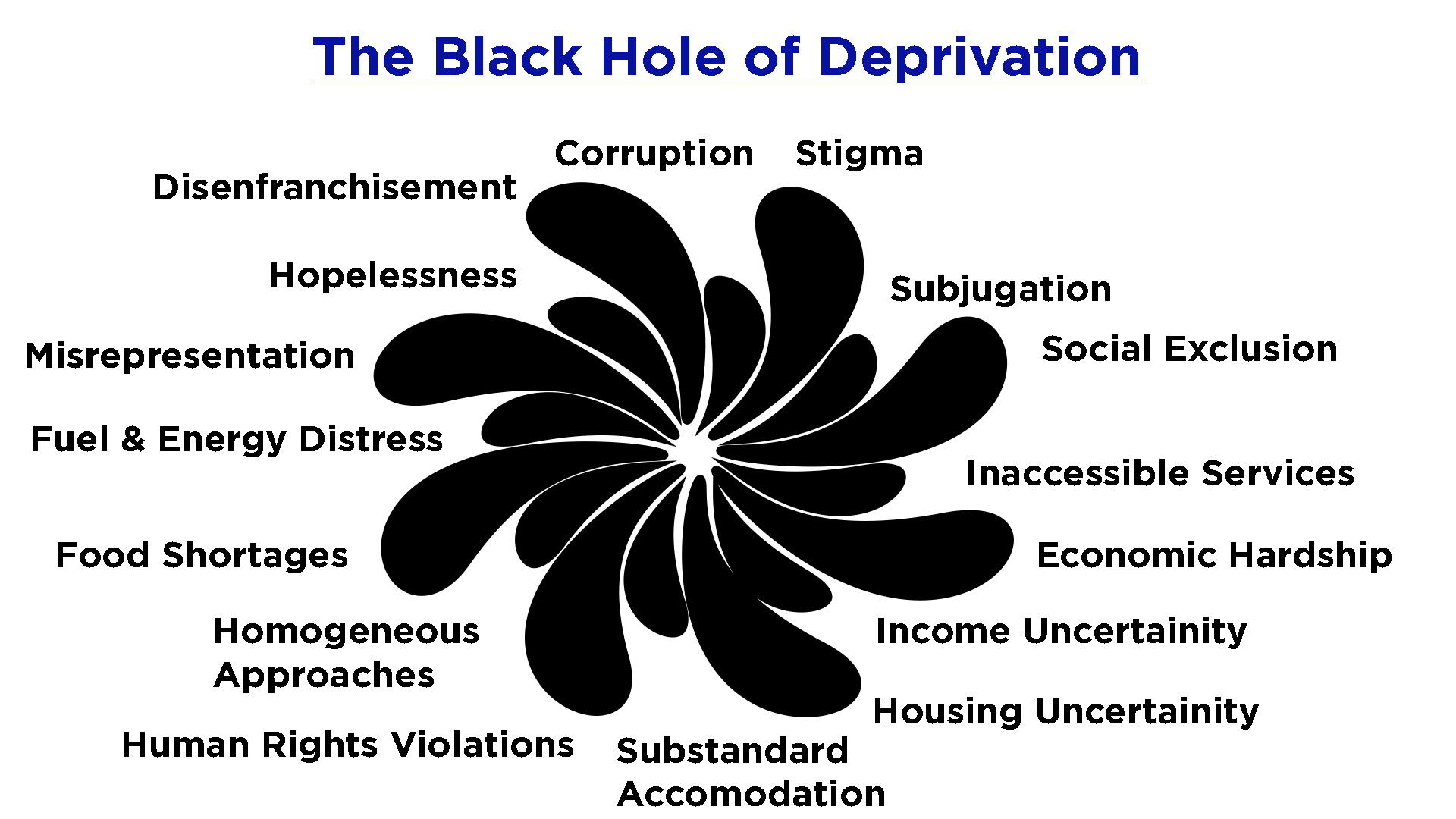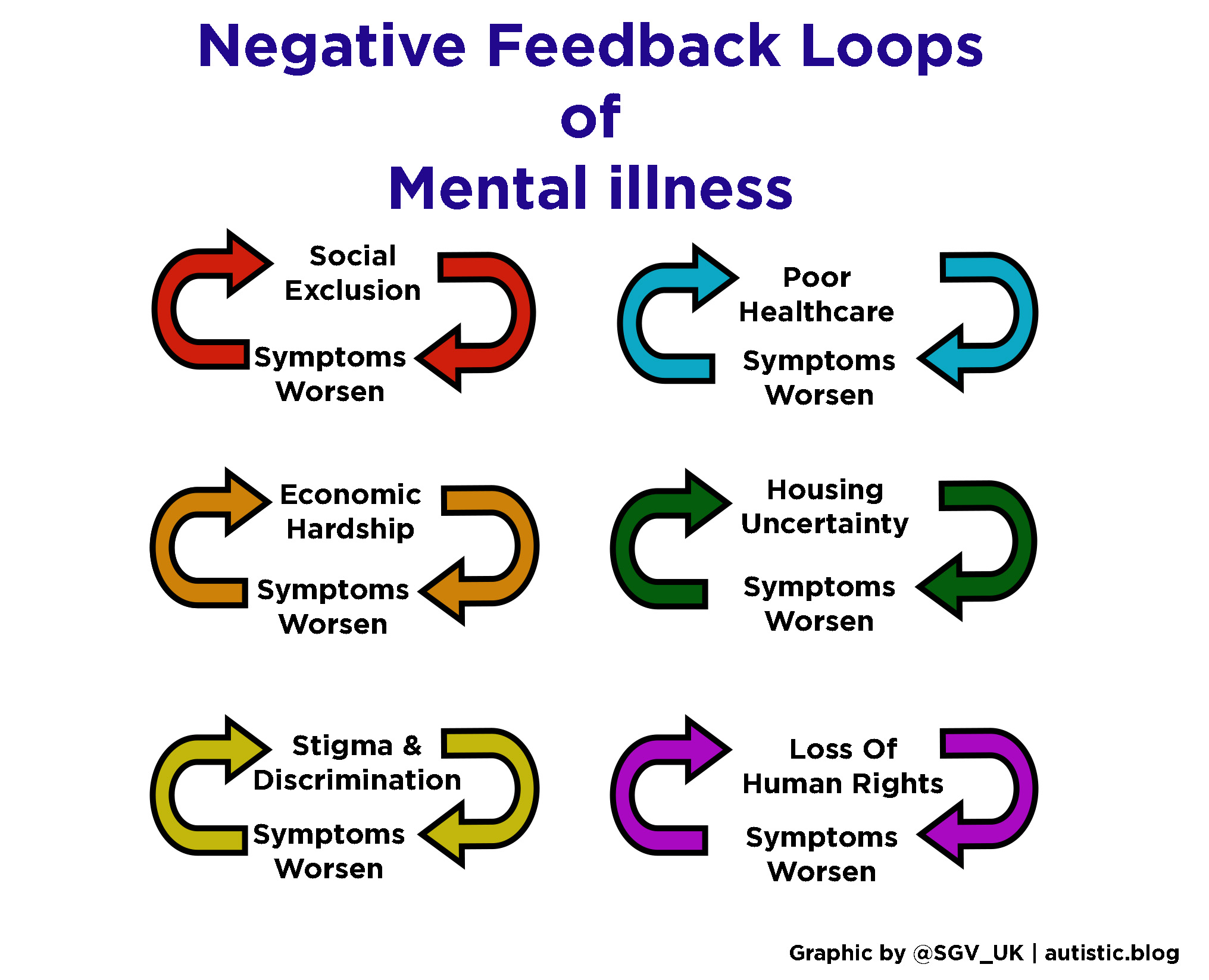Many of us who are Autistic also experience mental illness. Even if we don’t experience mental illness an Autistic person usually will experience similar barriers to someone with mental illness. These barriers can include social exclusion, stigma, discrimination, a lack of accessibility and no accommodations.
In this blog, I am going to discuss Negative Feedback Loops of Mental illness. Many people with severe mental illness find it is maintained because there is a continuous loop that maintains the symptoms. I have described an example of this in loops illustrated in the image above.
When you approach a Doctor for help with depression they will be assessing you based on the following criteria:
• Depressed mood most of the day, nearly every day.
• Markedly diminished interest or pleasure in all, or almost all, activities most of the day, nearly every day.
• Significant weight loss when not dieting or weight gain, or decrease or increase in appetite nearly every day.
• A slowing down of thought and a reduction of physical movement (observable by others, not merely subjective feelings of restlessness or being slowed down).
• Fatigue or loss of energy nearly every day.
• Feelings of worthlessness or excessive or inappropriate guilt nearly every day.
• Diminished ability to think or concentrate, or indecisiveness, nearly every day.
• Recurrent thoughts of death, recurrent suicidal ideation without a specific plan, or a suicide attempt or a specific plan for committing suicide.
Diagnostic and Statistical Manual of Mental Disorder
Likewise for psychosis you will likely be assessed as follows:
• Delusions
• Hallucinations
• Disorganized speech (e.g., frequent derailment or incoherence)
• Grossly disorganized or catatonic behavior
• Negative symptoms (i.e., affective flattening, alogia, or avolition)
Diagnostic and Statistical Manual of Mental Disorder
Quite often the diagnosis and treatment of individuals is based on symptoms like this. So for many people medication will be prescribed. It largely ignores the social justice consequences a person faces. Social justice refers to a fair and equitable division of resources, opportunities, and privileges in society.
Much Medication particularly anti-psychotic medication causes side effects such as lethargy and sedation. This means a person cannot participate in society fully which leads to social exclusion and economic hardship. These can worsen symptoms such as depression and psychosis. A person could experience delusions and depression from their social isolation. Ultimately the mental illness become a self-fulfilling prophecy of medicine and society. In IT, we aptly use a term, Garbage In and Garbage Out to describe what happens to computers input and output process.
Until we as a society begin to look at mental distress and social challenges holistically I suspect mental illness will continue to increase among the general population. We seem to be marginalising and segregating people with mental distress rather than welcoming them as equal participants in society with accommodations.
Once the barriers have firmly kept someone out, it is very difficult to reintegrate back into society. So many like myself live on the fringes and are political fodder for politicians that need to win votes through the anger of the electorate. As a Christian, I do my best to be a kind and compassionate person according to Christs teaching but I’m well aware that the political ideology of the day could be the end of life as I know it. Whether that’s through deprivation or more human rights violations.

I have discussed other aspects of this issue in my blogs of the Social Contract and Social Sins.
